When dark clouds roll in and the trail turns to mud, it’s time to rethink your hiking gear. And at the top of your checklist should be waterproof hiking boots. Whether you're gearing up for casual hikes or serious wet-weather treks, choosing the right footwear makes all the difference in comfort and safety. For high-quality, affordable, and trail-tested footwear, check out northsideusa—trusted by hikers across terrains and seasons.
Why Wet Weather Hiking Requires Special Footwear
What Makes Muddy Trails So Challenging?
From slippery rocks to sloppy terrain, waterlogged trails can turn treacherous quickly. Rain saturates the ground, blurs trail markers, and creates unstable footing. Hikers need gear that can stand up to puddles, mud, and heavy rains without compromising comfort.
Why Your Standard Boots May Not Cut It
Regular hiking boots often absorb water, become heavy, and lose traction. Waterlogged materials lead to blisters, trench foot, and reduced control on the trail. For nasty-weather hikes, you'll need something more resilient.
Key Footwear Challenges in Wet Conditions
- Waterproofing: To keep feet dry despite continuous exposure to moisture.
- Ankle Stability: To support your stride on slick inclines and declines.
-
Outsole Grip: To ensure you stay upright on slick terrain.
Key Features to Look for in Waterproof Hiking Boots
Waterproof Membranes
High-performance hiking boots use membranes like Gore‑Tex, Sympatex, and eVent. Northside also features its own PU-coated membranes, offering effective water resistance at a great price.
Boots should be fully seam-sealed for total protection. This is especially crucial in prolonged rain, where water finds every small weakness.
Breathability in Wet Weather
Your boots should keep water out and let sweat escape. Without breathability, internal moisture builds up, leading to discomfort and odor.
Seam Sealing and Gusseted Tongue Design
A gusseted tongue prevents water from entering through the lace area—one of the most vulnerable entry points.
Construction Materials
- Full-Grain Leather: Durable and naturally water-resistant.
- Lightweight Synthetics: Dry faster and weigh less.
- Quick-Dry Liners & Antimicrobial Footbeds: Help manage internal moisture and odor.
Explore Northside’s top-rated hiking shoes for women—engineered for wet-weather comfort, breathability, and protection.
Grip and Traction: Your Defense Against Slips
Deep Outsole Lugs
Deep, wide lugs dig into soft mud and provide traction where flat-soled shoes fail. Choose boots with anti-clog designs to keep the grip functional.
Outsole Material Comparison
Vibram is the gold standard, but Northside’s proprietary rubber also offers outstanding grip in wet environments. Some advanced models also include carbon-infused outsoles for better bite.
Heel Brake and Rock Plate
A heel brake controls descent speed on slick terrain, while a rock plate keeps sharp rocks from bruising your feet.
Arch Support for Uneven Trails
Proper arch support stabilizes your foot and reduces fatigue—especially crucial on slick or unstable terrain. A well-supported step is the first step to a slipper-free hike.
Fit, Flexibility & Rainy-season Comfort
Why Fit Changes in Wet Conditions
Your feet swell during long hikes, especially in the heat and humidity of late summer/early fall hikes. Wet socks and friction can quickly cause blisters. Always size up slightly and allow room for thick socks.
Ideal Boot Height (Mid vs High)
- Mid-cut: Best for agility and everyday trail use.
- High-cut: Offers superior ankle support for technical or water-heavy trails.
Weight and Packability
- Lightweight boots: Ideal for day hikes.
- Heavier-duty boots: Best for backcountry and multiday treks.
Sock Pairing Advice
Avoid cotton. Choose merino wool or synthetic quick-dry socks. Always test your boots with the socks you plan to hike in.
Waterproof Boot Maintenance in the Fall
Cleaning & Drying Best Practices
After hiking:
- Remove insoles
- Rinse mud gently
- Stuff boots with newspaper
- Air-dry in shade (avoid heaters)
Reapplying Waterproof Coatings
Use waterproofing agents like Nikwax or DWR sprays regularly—especially after multiple wet hikes. Leather boots can also benefit from occasional wax treatment.
Long-Term Storage Tips
Store in a cool, dry, ventilated space. Don’t seal in plastic—this causes mildew and liner breakdown.
Best Northside Waterproof Hiking Boots for Less-Than-Perfect Trails
Northside Snohomish Waterproof Mid Hiker
Built for rugged terrain, this boot offers a breathable lining, deep traction outsole, and reliable waterproofing—perfect for long, wet trails.
Northside Apex Lite – Women’s
Lightweight yet durable, this boot provides secure grip and moisture control—tailored for a woman’s fit.
Northside Alpine Ridge – Men’s Lightweight Option
Great for tropical rain hikes and quick weekend trips. Its breathable construction keeps feet fresh without sacrificing waterproof protection.
Northside Kids' Hiking Collection
Even little hikers need waterproof gear! Northside’s youth collection provides flexibility, support, and rain protection.
For wet-weather hunting treks, Northside’s hunting boots offer rugged grip, waterproof tech, and comfort designed for long hours outdoors.
Gore‑Tex Alternatives: Are They Just as Good?
Why Some Hikers Avoid Gore‑Tex in Humid Rain
Gore‑Tex performs well in cool climates but can feel hot and stuffy in humid conditions. It’s also more expensive and less eco-friendly than newer options.
Comparing PU-coated Membranes & Proprietary Options
Northside’s proprietary waterproofing is breathable, flexible, and cost-effective—making it a strong alternative to Gore‑Tex in humid climates.
Breathability Trade-offs
For long hikes in variable climates, Gore‑Tex might be worth it. For short to moderate hikes in humid rain, PU membranes often perform better.
Trail-Tested Tips for Fall Boot Shopping
- Fit Test: Try boots with thick hiking socks.
- Water Test: Submerge them in water for 10 minutes.
- Flex Test: Check sole flexibility and natural toe roll.
- Break-in Period: Take 2–3 short hikes before a big one.
- Insole Upgrade: Replace factory insoles if needed for better arch support.
Complete Fall Gear Checklist (Bonus)
Make sure your gear includes:
- Waterproof boots
- Gaiters
- Rain jacket or poncho
- Quick-dry shorts or pants
- Waterproof pack liner and dry bags
And don’t forget trail-ready accessories from Northside’s full range of outdoor gear.
FAQs – Waterproof Hiking Boots for Rainy Trails
It’s best not to rush. A slow, step-by-step process protects your feet. Accelerating the break-in may cause injury or shorten the boot’s life.
Only apply low heat to leather boots. Avoid soaking boots in water—this can warp them and weaken adhesives.
Persistent discomfort could mean your boots are the wrong size or shape for your feet. Consider aftermarket insoles or exchanging the boots.
Not always. It depends on the boot’s material. Full-grain leather takes longer, while synthetics break in faster regardless of price.
Yes. Hiking shoes are often more flexible and lighter, making them easier to break in. However, they may not provide the same level of ankle support for rough trails.
No. Look for boots with breathable membranes or moisture-wicking linings to prevent internal moisture buildup.
Reapply every 3–6 months, depending on usage. Wet climates may require more frequent treatment.
Yes—for most trails. Go high-cut for deeper water crossings or rugged routes.
Yes, but only on well-maintained trails. Boots offer better ankle support and waterproofing.
With care, 2–4 years. Dry thoroughly and store properly to maximize lifespan.
Conclusion – Step Confidently Into Fall
Picking the right waterproof hiking boots transforms soggy, slippery trails into exciting adventures. Focus on traction, waterproof membranes, fit, and breathability to ensure safe and comfortable hikes every time.
Northside delivers on all fronts—with high-performing options for men, women, and kids alike. Their boots combine value, performance, and rugged durability to face the wettest conditions head-on.
Need help choosing the right pair? Reach out through the contact page for personalized support.


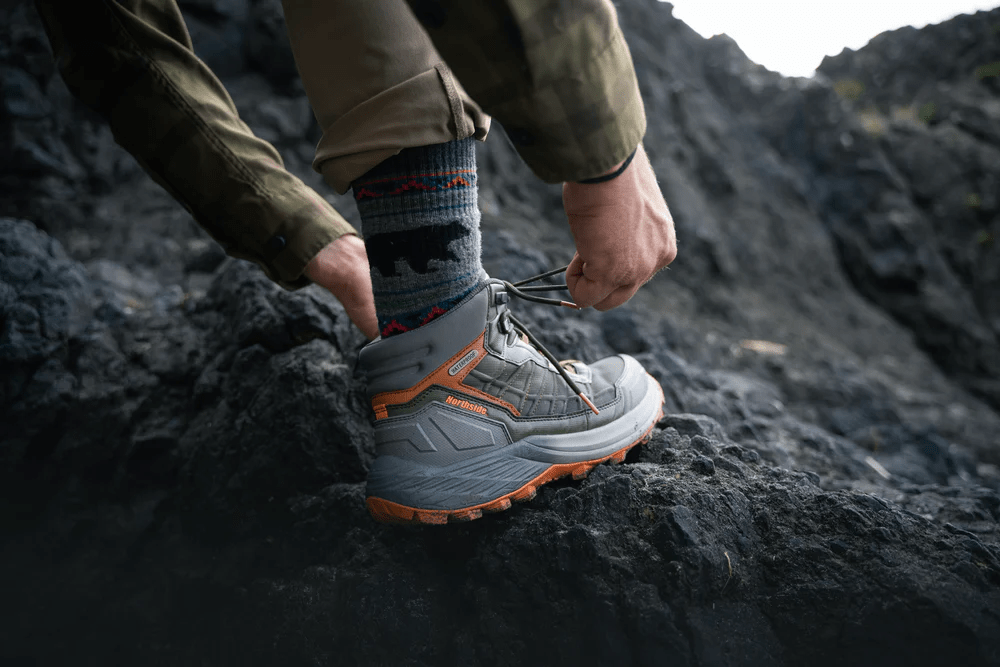
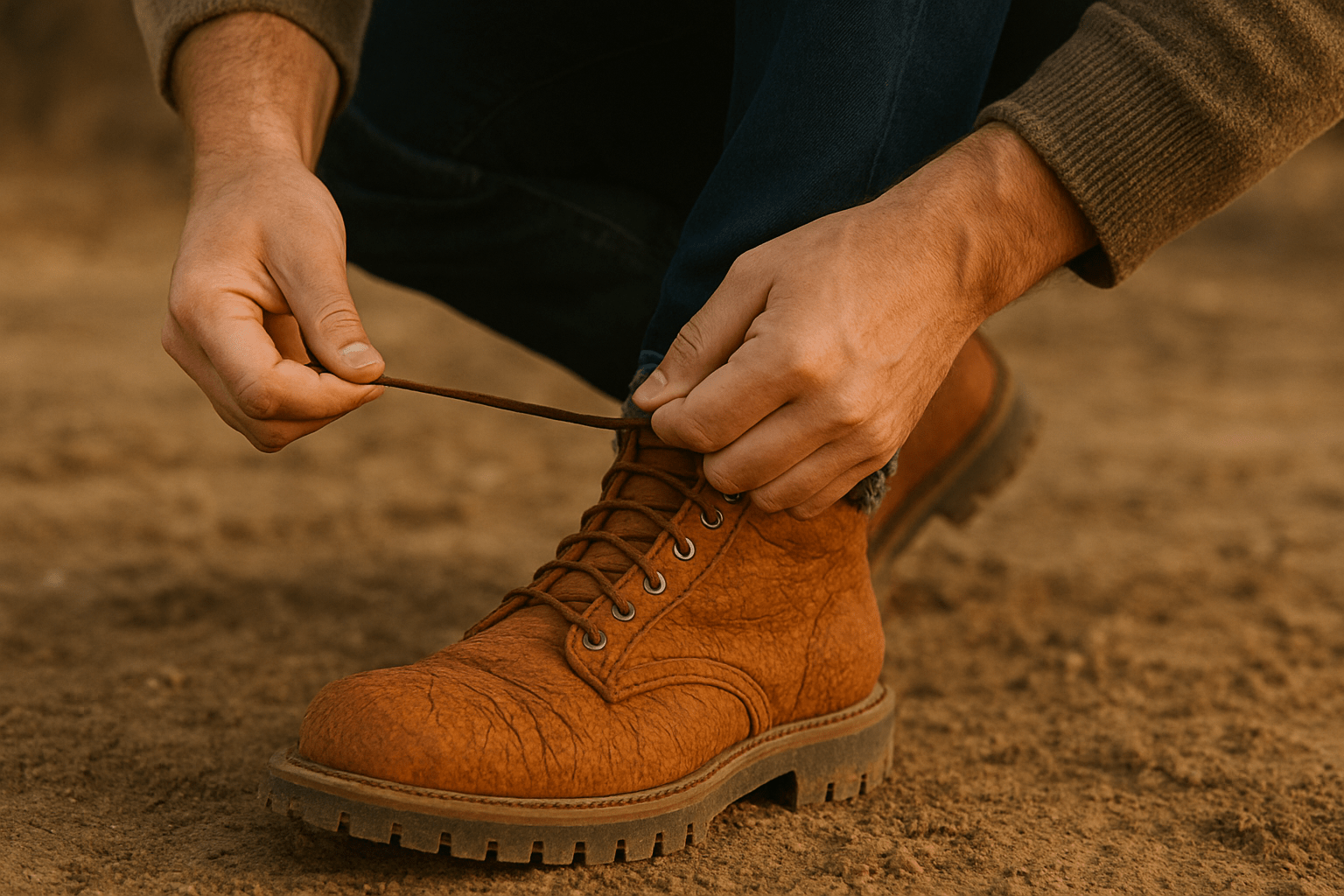
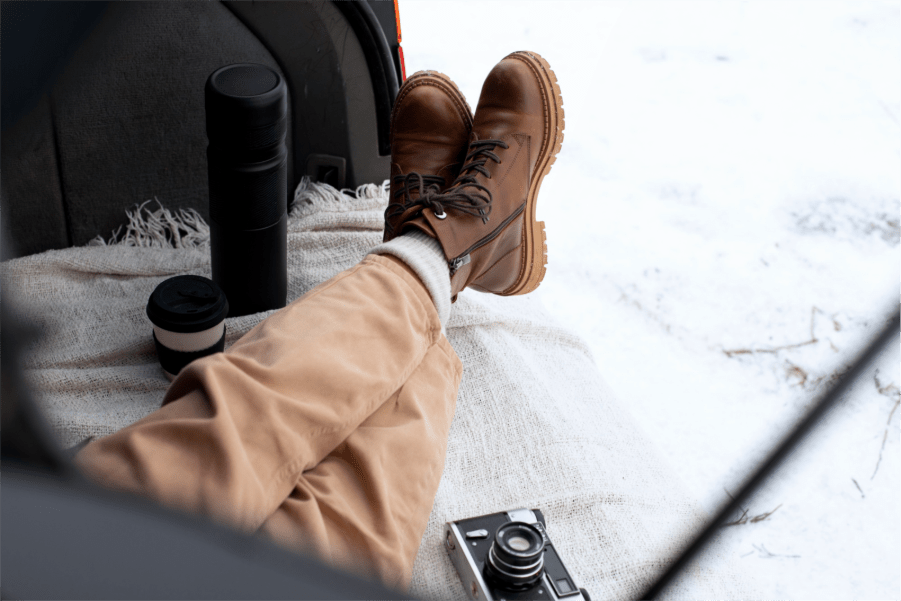
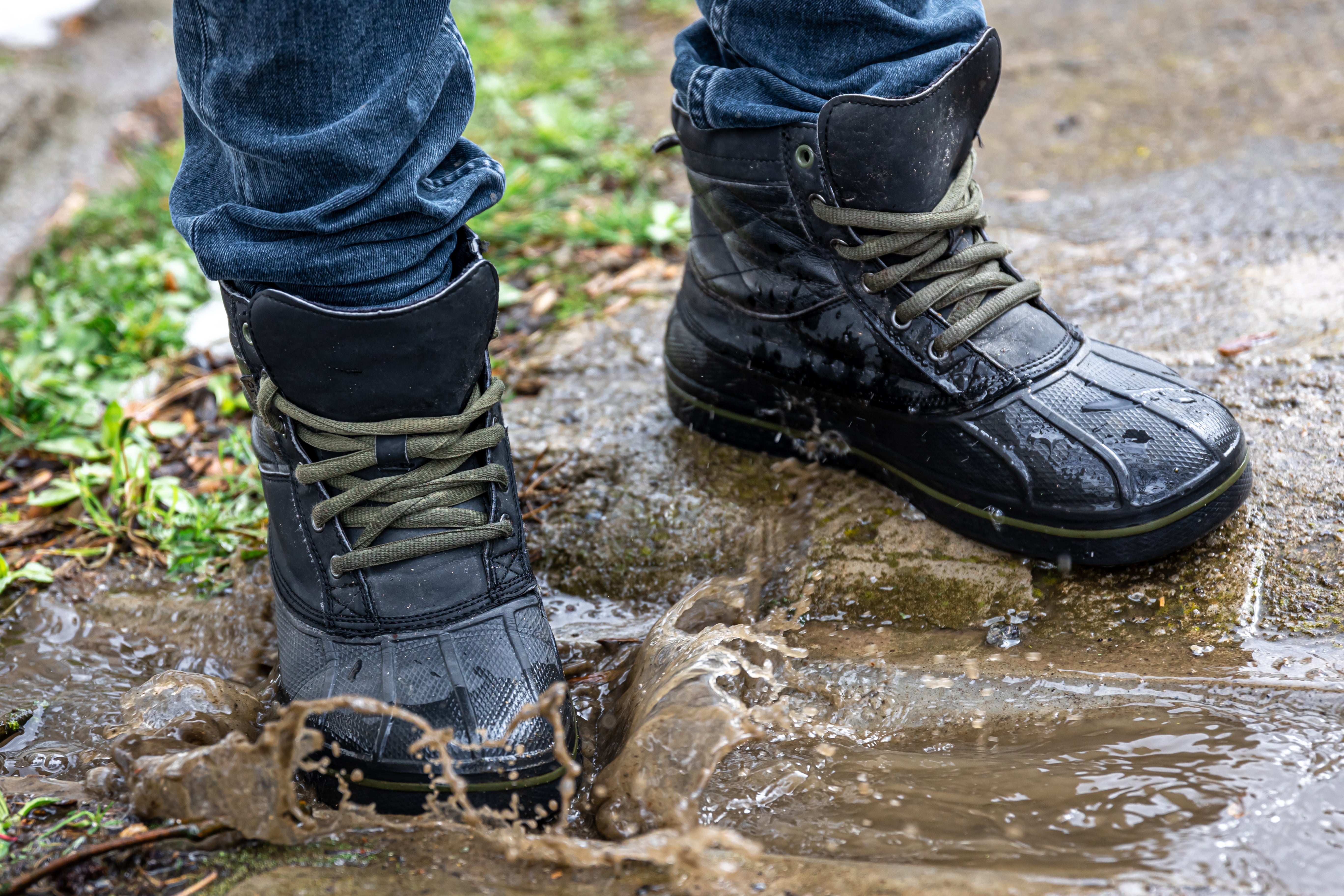
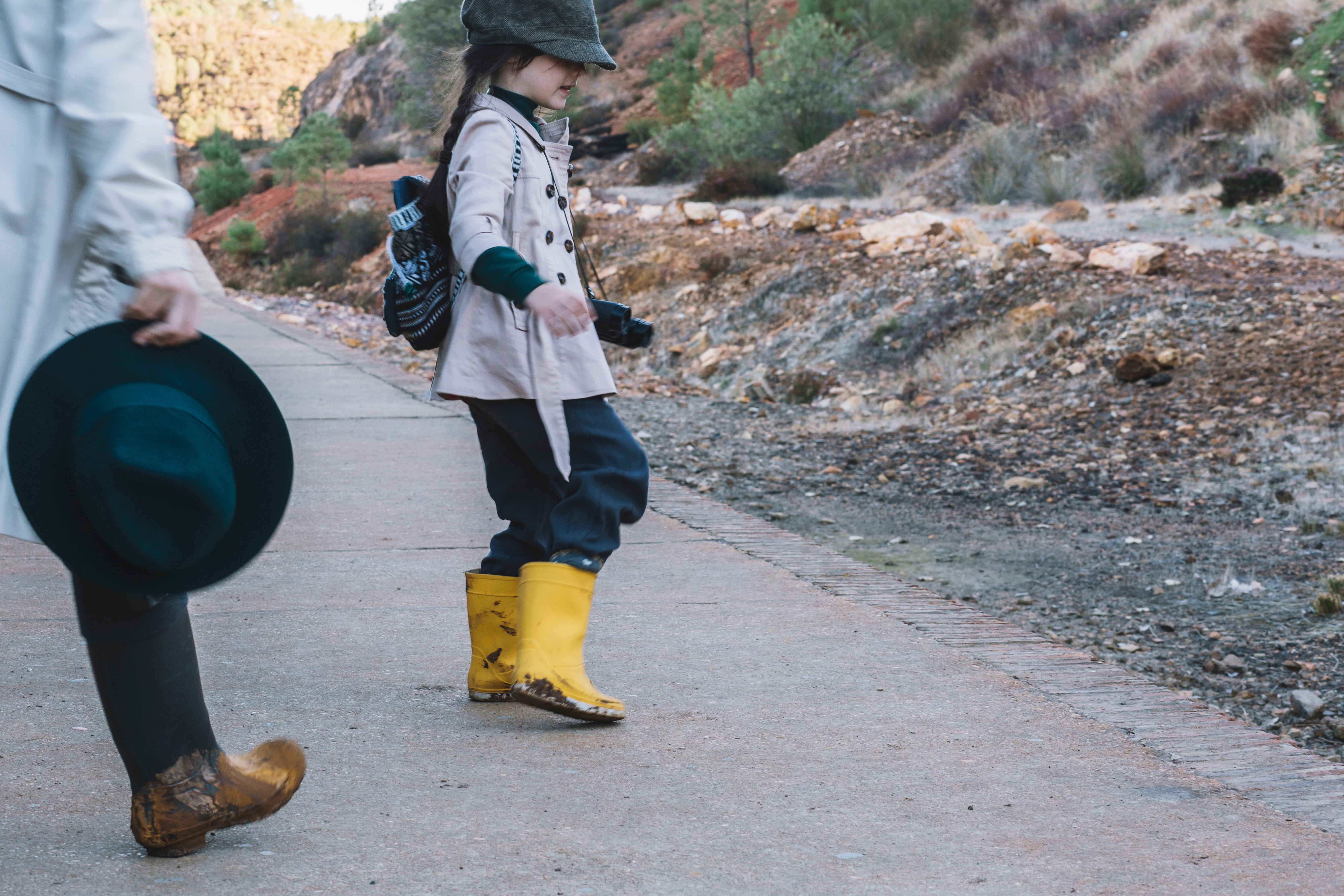
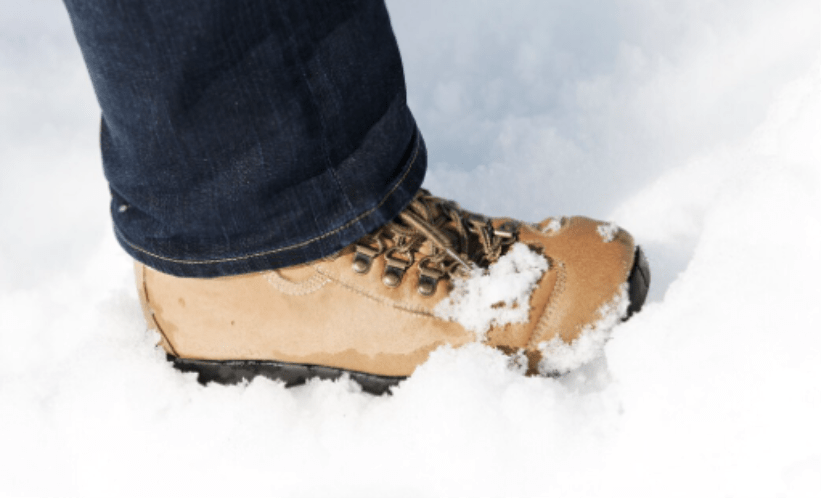
Leave a comment
All comments are moderated before being published.
This site is protected by hCaptcha and the hCaptcha Privacy Policy and Terms of Service apply.